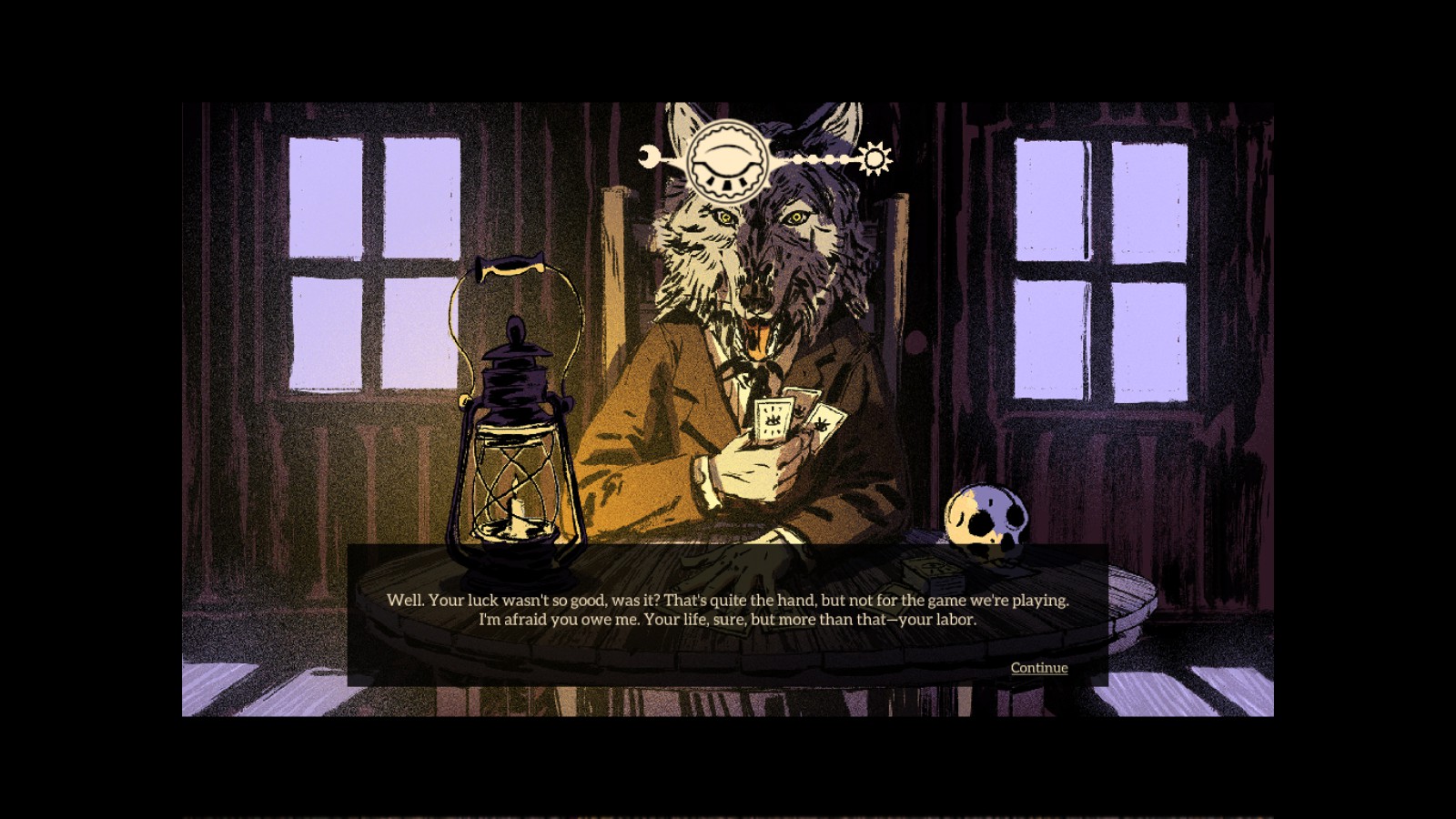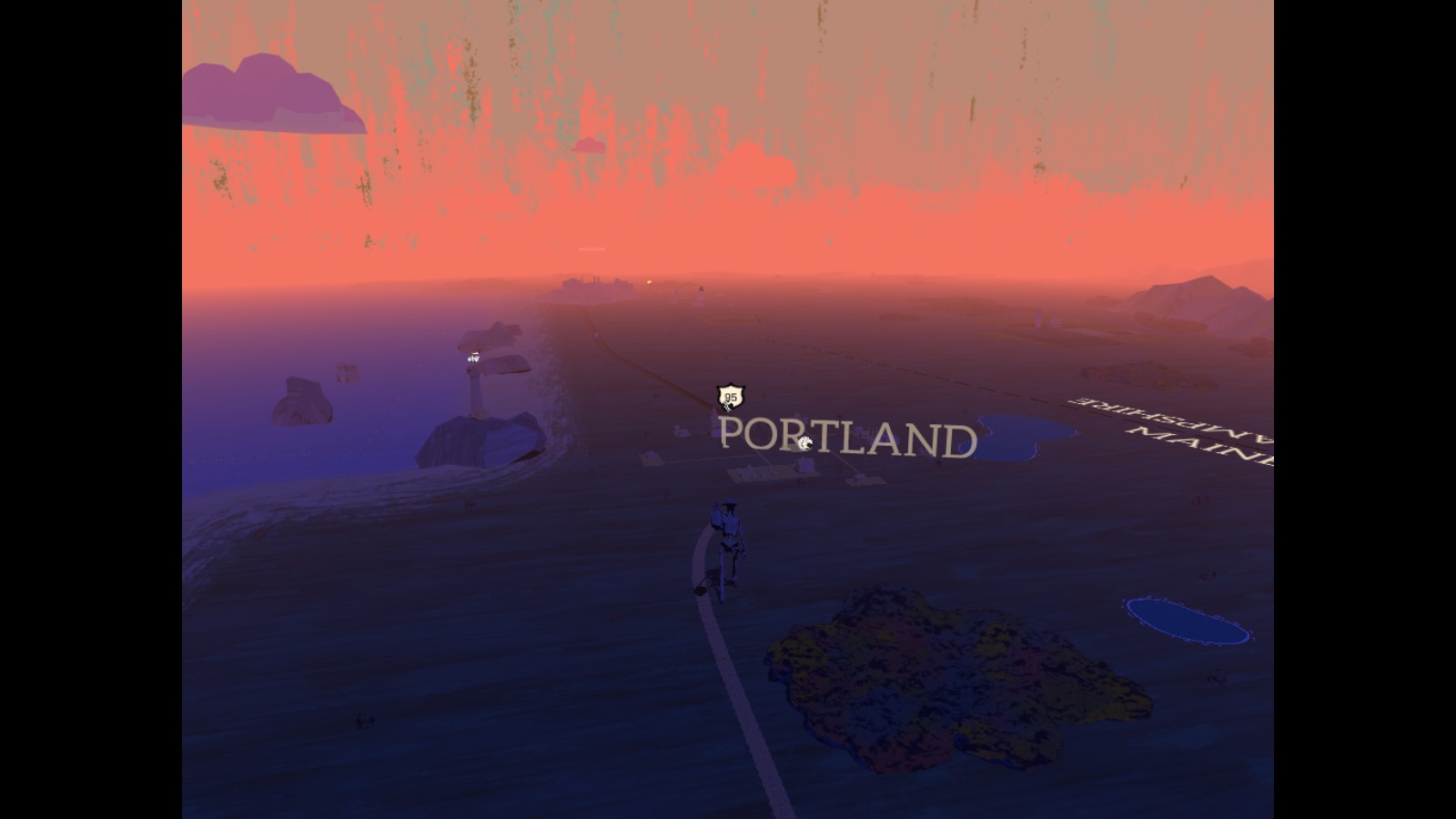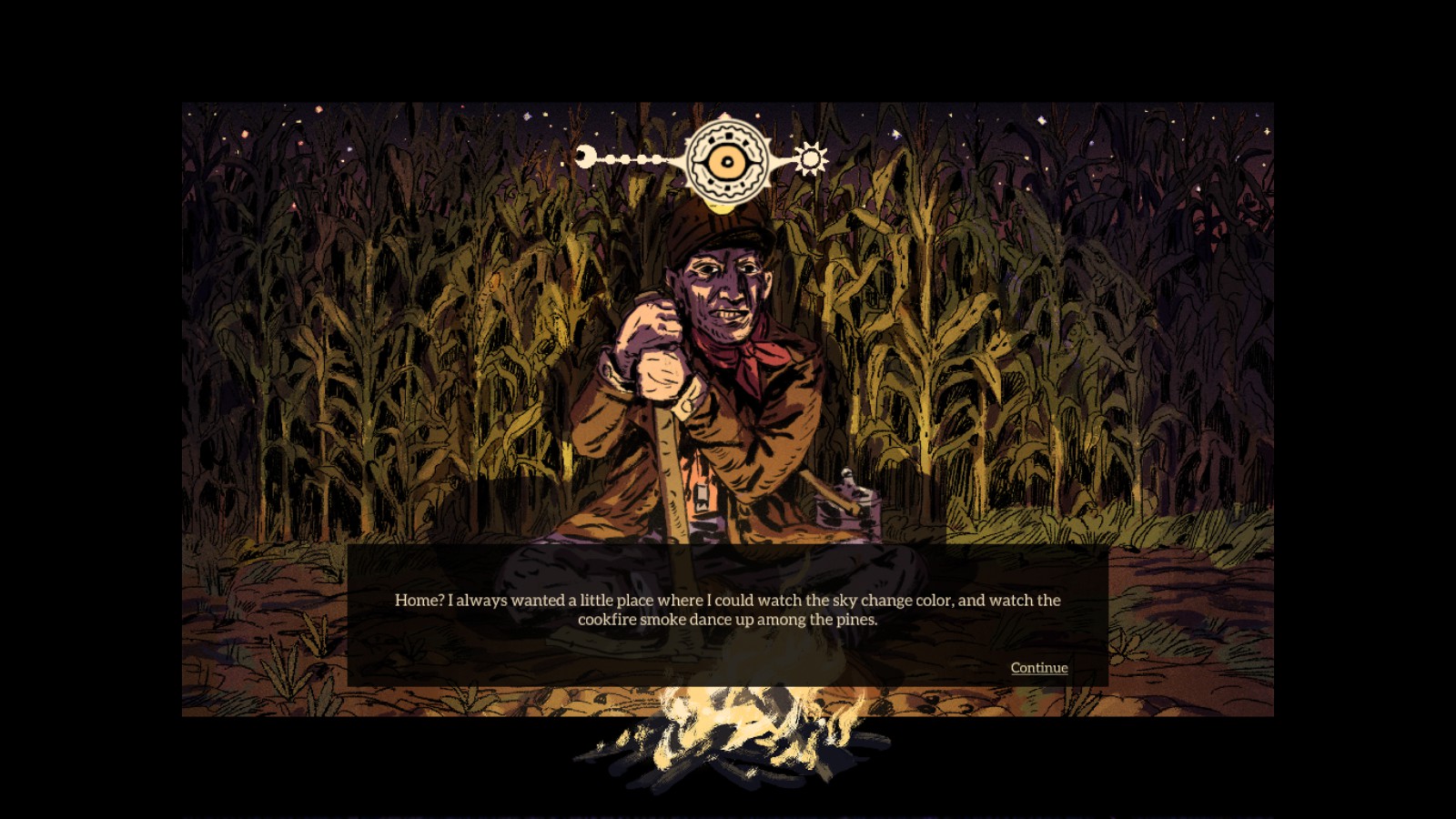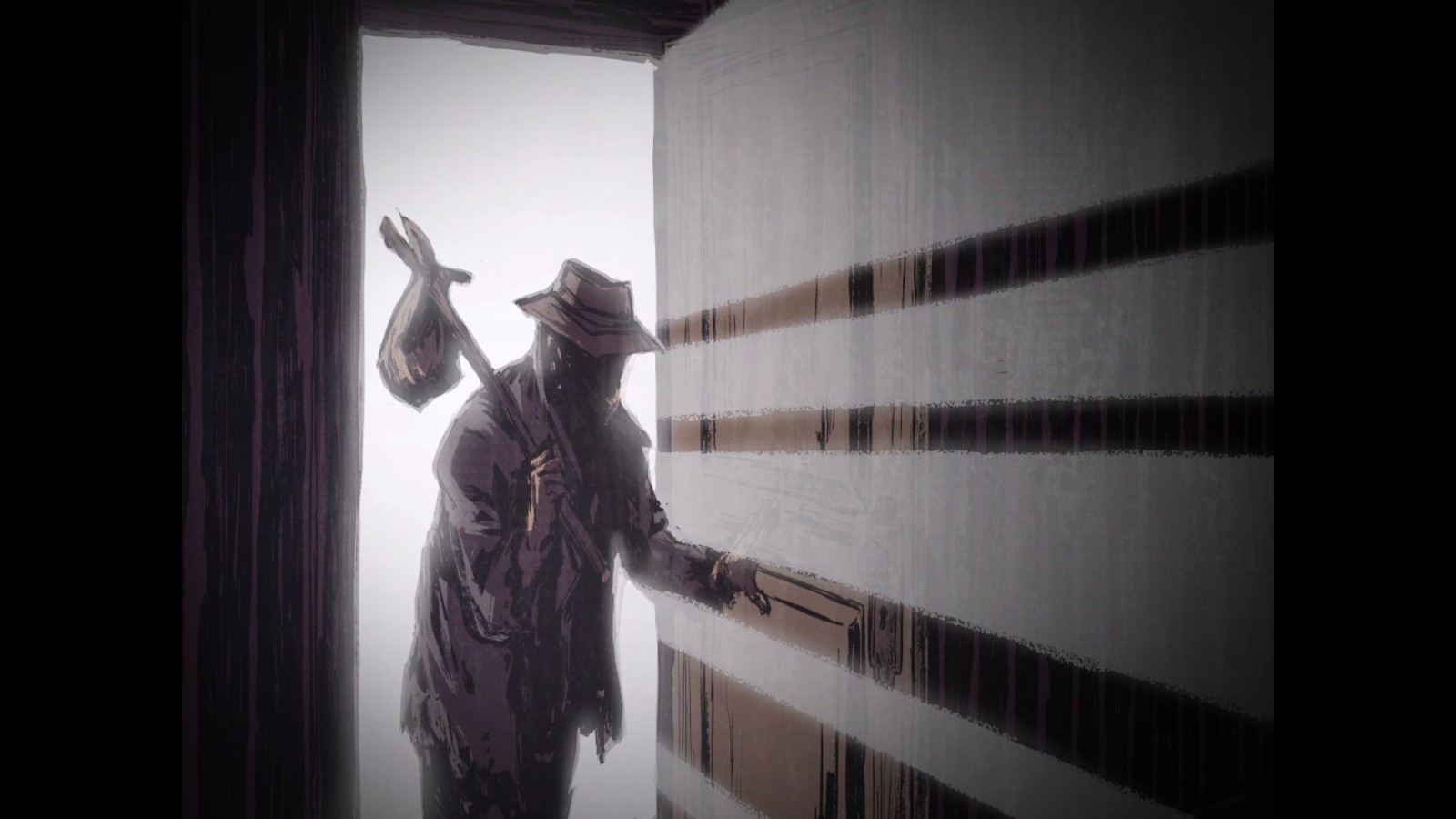Where the Water Tastes Like Wine understands that America is a nation of shared experiences. Myths and legends resound throughout culture, built upon through word of mouth, weaving each individual across every city and state into a large tapestry. One “grand story,” as the game describes; and it effectively succeeds in delivering what is essentially an interactive collection of short stories, tonally akin to the likes of Faulkner and Twain.
However, WtWTLW deserves to be a better game than the final product is. Conceptually, every facet of the game’s design works to facilitate its storytelling ambitions. The game’s greatest failure lies in its inability to effectively carry out those inspired mechanics. Stories replace currency; it plays on the traditions of classic collectathon gameplay, only here you are collecting stories, experiences of others which inextricably become your own in passing. Which is brilliant.
The majority of time is spent travelling across a map of the United States, seeking out stories to read through and collect. Campfires then serve as a sort of twist on the traditional “boss encounter,” in which the player is tasked with impressing a certain stranger enough by sharing stories they want to hear. If a stranger asks to hear something funny, the challenge is deciding which story ought to be funny enough to warrant a welcome response, in order to better establish a connection to that individual. Which is, once again, brilliant.
The Game Deserves Better

In execution, this system lacks compelling structure and often comes off as frustrating instead of eliciting a compassionate response. Say a stranger wants to hear a scary story, but the player does not have one to tell. The only option is to exit and wait to meet them again at another campfire.
Or, the more impatient gamer may instead opt to play a guessing game, picking a story that reads like it may be thrilling, only to result in a lukewarm response from the stranger, in which case that story has officially been wasted. It can be especially infuriating when the spoiled story later reveals to be a good fit for a now-desired category, because no single story can be told to the same person twice.
Travelling across the map also proves to be wildly uninteresting most of the time. The grandeur and thematic beauty of the colorful canvas at first excites and intimidates, but soon loses potency after slowly traversing its monotonous regions for so long. The player is always gradually moving closer and closer towards targets to stop at, so the primary gameplay of this game simply fails to rouse interest.
Stylistically Uncoordinated

Plus, the low-poly, three-dimensional artistry seems nearly wholly divided stylistically from the illustrations on display during story sequences. The two key design structures fail to mesh with each other into a shared experience, and returning to the less-impressive world map is jarring each time. The art design is just wildly inconsistent; understandably so, however given the differing aspirations for gameplay.
But when those stories are shared, the game reaches the apex of its ambitions. WtWTLW features some of the most illustrative, tonally consistent writing in any game I have played. The narrator often fails to effectively breathe Life into the wordage — his elocution sounds like a voice actor playing a role most of the time — but the wondrous descriptive language on display throughout captures the enthralling, ambiguous nature of America with apt precision.
“The man is the color of mill dust. His smile creases his face like folds in dough.” There is an air of luminous, otherworldly prophesying to the text adventure-style storytelling, which helps the audience to envision a constantly struggling world full of various personas seeking their own sense of worth.
America is a Nation of Shared Experiences

The developers at Dim Bulb Games and Serenity Forge, as well as the special guest contributors who compose the various campfire sequences, wish to capture the broad appeal of travel and companionship in their collaborative effort. Unfortunately, Where the Water Tastes Like Wine too often lacks the beauty of travel itself in tandem with reaching the destination. The stories — the people, are the game’s main subjects of desire; only the journey towards them lacks the luster associated with the act of hearing and meeting them itself.
Failing to garner enough of a relationship with strangers at campsites is disheartening because it results in more of the same mindless wandering. Finding new stories is always a joy; if only journeying towards them were as enthralling an experience. Sharing stories ought to be the main focus and goal of a rich narrative venture such as this, not the means to a underminingly gamified end.



